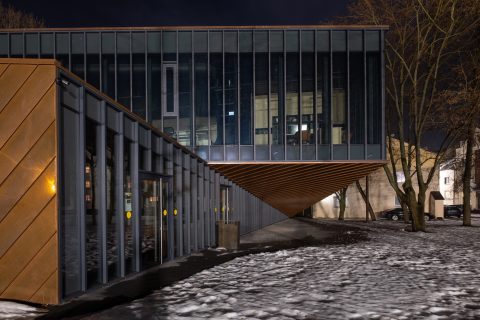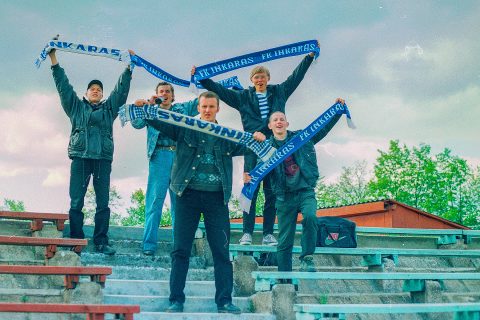“If a match is between a weaker and a stronger team, I always secretly hope that the weaker one will win.”
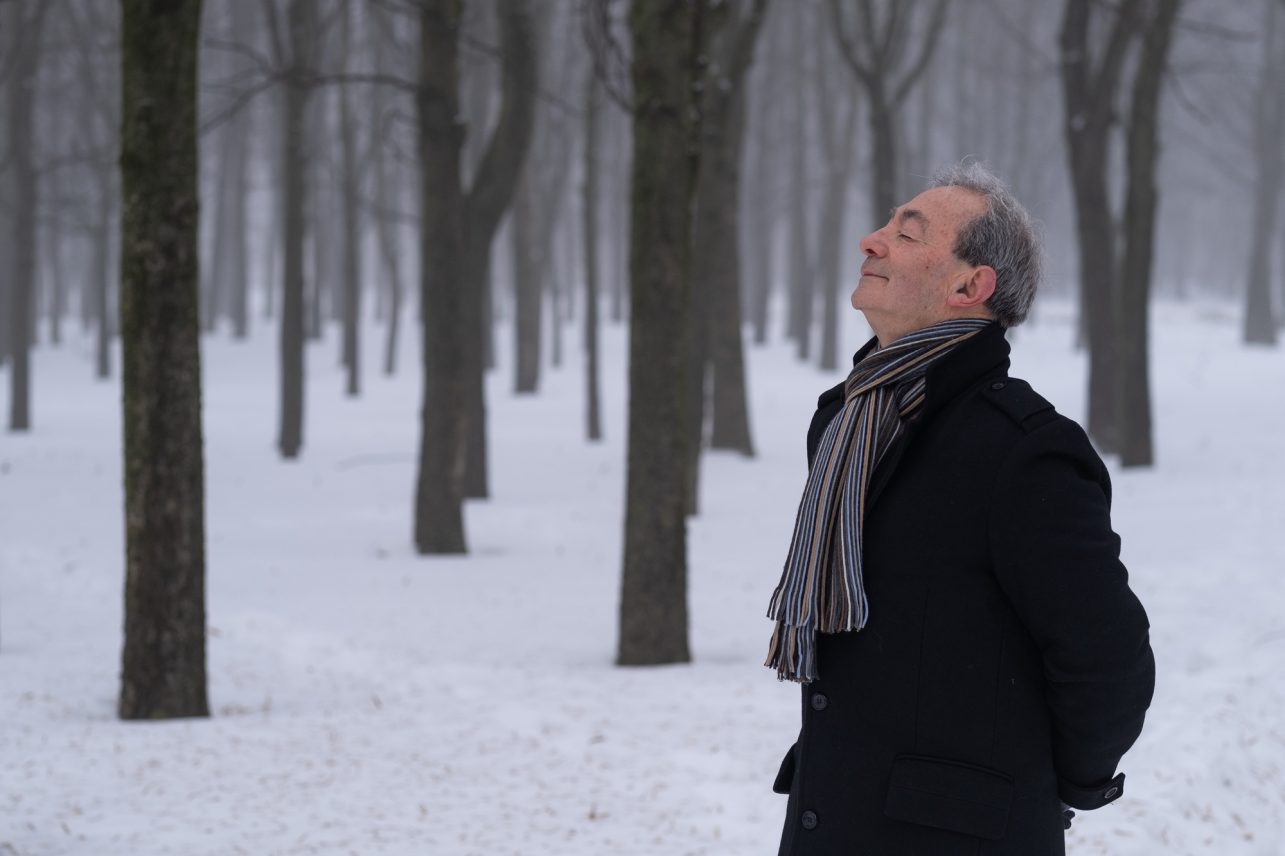
“Monika, your colleague Kotryna mentioned that you come from the Raseiniai region. Maybe you know Marta? For the last few years, she has been actively contributing to the activities of the community,” Gercas Žakas, the vice-president of the Lithuanian Football Referee Association and the chairman of the Kaunas Jewish community, asked me right after I started the conversation. This coincidence is incredible. Marta, whom Gercas spoke of, is my childhood friend who spent her summer holidays with her grandparents, who lived just a few steps from my father’s birthplace. The interviewee also knew the grandparents and had even visited them. But all this is just a small part of what we discussed during the conversation. After sharing the memories, we embarked on a much more interesting journey, the journey through Gercas’ life.
Gercas Žakas spent the first twenty years of his life in Kaunas Old Town, where he was born and raised. There were a lot of open spaces in the Old Town that brought the young people living in the neighborhood closer together. We didn’t have cell phones or computers; we spent each and every day outside. In summer we wandered around Kaunas Castle and played football, and in winter we immersed ourselves in hockey and snow wars. I was used to the Old Town and everyday hustle and bustle,” the interviewee recalled.
In addition to daily outdoor games, Gercas was very interested in sports and music in his youth. To this day, he perfectly remembers the days of school and university, when many weekends were spent in dances organized in Kaunas, where he played a brass instrument. Eventually, however, he turned to professional football, which the interviewee had quietly dreamed of from an early age. On the way to achieving the dreams, there was no shortage of obstacles. “After graduating from school, like every young person, I thought about what I would like to do next. My first choice was the Lithuanian Sports University, which at that time was called the Lithuanian State Institute of Physical Education. I knew I was welcome there, but my parents still decided that sport was not a specialty that one could make a living out of and pushed me to study odontology. Although I disagreed with their suggestion, I obeyed and tried to enter medical school. To this day I am glad to have realized during the exams that these studies are of no interest to me and done everything that is in my power to not get admitted. Funny, but that’s how it all happened. Of course, my parents were considering additional alternatives, but this time I categorically refused and decided to choose my own path. For a while, I worked in a radio factory and played in their football team called Banga, and the next year I was admitted to where I always wanted to go – sports university.” And that is when everything slowly accelerated.
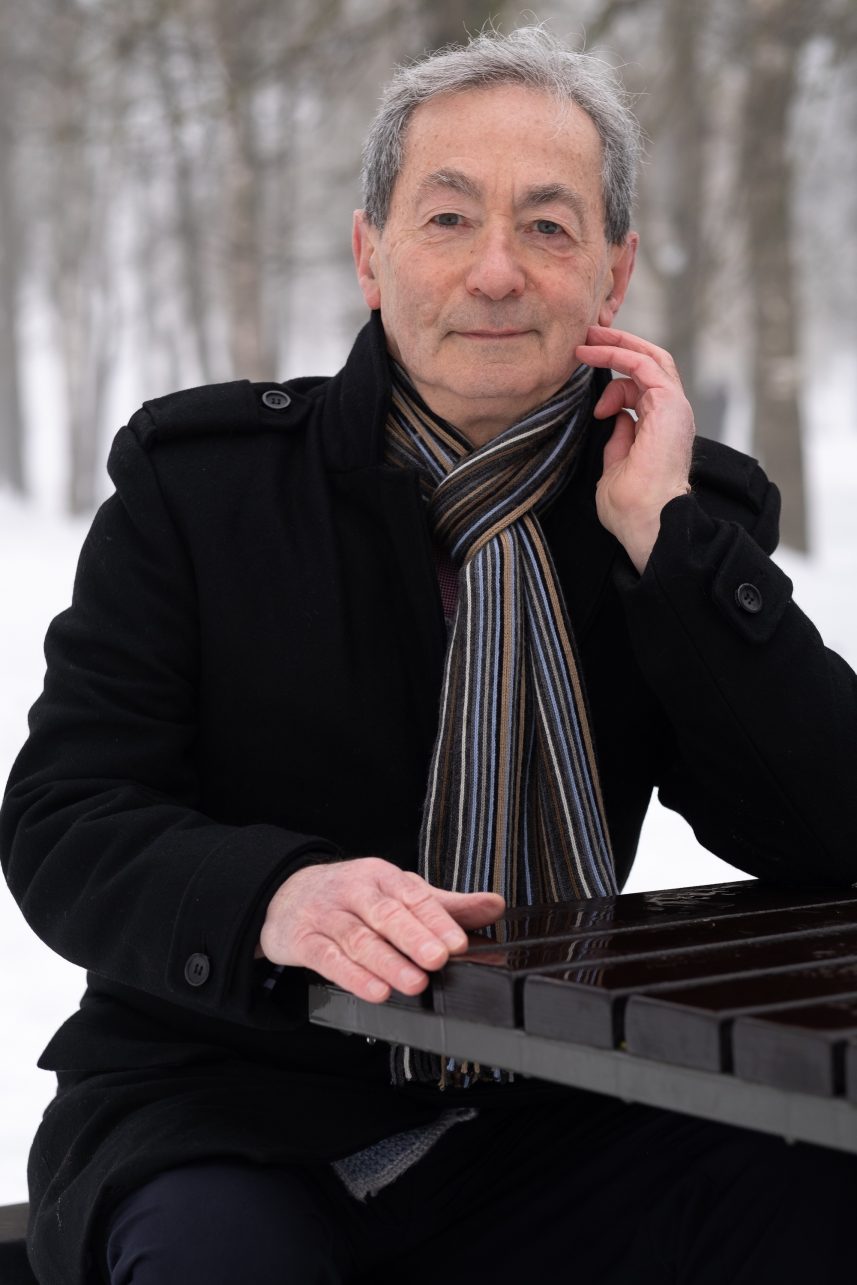
In 1988, when the idea of independence became more active in society, an active group appeared in Vilnius, headed by Semionas Finkelšteinas. They appealed to foreign organizations and world leaders because they decided to restore the Jewish sports club Maccabi, which was suspended in 1940. The club was founded in 1895 in Istanbul when the state of Israel didn’t exist yet and Jews were scattered all over the world. By the way, the name was not chosen by chance. It is said that the word maccabi is a hammer that refers to a strong blow and victory. This strength was especially important to those who wanted to revive the club. For these reasons, Semionas was looking for like-minded people and contacted Gercas, offering to join. “I received a call from Semionas. It turns out that my number was given to him by Artūras Poviliūnas, the president of the Olympic Committee, which was restored after independence, with whom I studied at the sports university. He called and invited Kaunas residents to join the club. To this day, I remember perfectly well how excited he sounded when he told me about the possibility of re-establishing the club in Lithuania and perhaps going to the world Maccabiada in Tel Aviv in the near future. Although I never said it out loud, I kept wondering if they understood what they were dreaming about. Imagine going to Tel Aviv during the Soviet occupation. It’s impossible! Be that as it may, I gladly agreed. I wanted to engage in diverse activities because we didn’t have many of them around, everything was controlled by the KGB,” Gercas Žakas shared his memories.
World Maccabiah Games, which Semionas told Gercas about, are Jewish community’s games that came about as a result of the 1929 Maccabi congress proposed by Yosef Yekutieli. The very first games took place on March 28, 1932, at the Maccabiah Stadium in Tel Aviv. The participants included a quite large Lithuanian delegation of around 60 people, 40 of which were from Kaunas. The desire to represent Lithuania greatly encouraged the Maccabi club not to succumb to strict Soviet rule. And in 1989, what seemed like a naive dream at first, gradually started to come to fruition. “The negotiation process was quite long but the organizers of Maccabiada helped us. They wanted to show that anything was possible – even bringing a delegation from a closed Soviet Union. I remember we even expressed a desire to represent Lithuania, carrying only the flag of our country, but they did not allow us to do that. I was glad we reached a compromise that resulted in us carrying two flags. But, in fact, many people knew that we were a Lithuanian delegation because, at that time, no other Soviet republic had restored a club. People were afraid because KGB control was very strong. But, in our eyes, it was all a matter of politics. We travelled as a large delegation, from football to tennis, swimmers, and chess virtuosos. I went as a player and a football coach. In addition to competitions, we travelled a lot, participated in conferences, and gradually realized that Maccabi is not just a sport. It is a culture that creates a collective consciousness and a connection between Jews.”
The delegation that went to Maccabiada in 1989, was one of the first to represent Lithuania during the occupation when the country’s independence was still not recognized. According to the interviewee, this had a positive impact on the independence and Lithuanian sports movement, and I would dare to agree with that. “During the opening ceremony of the Games, delegates from different countries marched around the stadium. Lithuania was the second from the bottom, Israel came after us. The organizers delayed us. We stood in complete silence and had no idea what to expect. With permission, we entered the stadium like martyrs, who had fled a country that is impossible to escape. And then behold – a miracle, here we are! I raised my eyes and saw 40 thousand people who were standing and applauding us. It was incredible. In fact, as soon as I think about it, I get shivers all over my body, just like on that day,” Gercas says with a smile. These positive events also had a positive impact on the future of the Maccabi Jewish sports club. In 1990 several hundred athletes joined the club.
Although the trip abroad gave me a lot of hope, as soon as I returned home, my motivation dropped a bit: the change was rather slow. As if out of nowhere politician Mindaugas Murza (also known as Gervaldas) appeared. He worshiped Hitler and for some vague reasons was anti-Jewish. “Murza was very hostile towards Jews at the time, so I started considering emigration. It was the very beginning of independence, we didn’t know what to expect, and many acquaintances decided to emigrate to Israel or the United States. We applied to the US Embassy, which was only in Moscow at the time, and we succeeded in obtaining refugee status. Over time, we began to wonder if it would be easy to leave our homeland. It took us three years. We received a few letters from officials urging us to come, and the embassy even offered to pay for the whole family’s travel expenses, but in the end, we still decided to stay here in Kaunas,” the interviewee opened up.
Gercas Žakas stayed in Lithuania and devoted all his energy to the Kaunas Jewish community and sports, which he loved so much from an early age. All this accompanies Gercas to this day – he is still active in the community and in the Lithuanian Football Referee Association. The bold decision made in his youth to give up the unwanted specialty and choose his beloved activities led him both to culture and to Kaunas Cogeneration Power Plant, where he worked as a football coach for more than 30 years. It always brought a lot of joy. Although, when it comes to Lithuanian football, thoughts can vary. “We all know well that the current situation of Lithuanian football is unsatisfactory to many. We see that football reigns not only in Europe but all over the world. For some reason, people are criticizing the federation, but in my eyes, the issues stem from the government and people’s attitude towards football. There is not a single national stadium in Lithuania, which is unheard of. I hope that we will soon have a modern stadium of European standards in Kaunas and gradually everything will start to improve.”
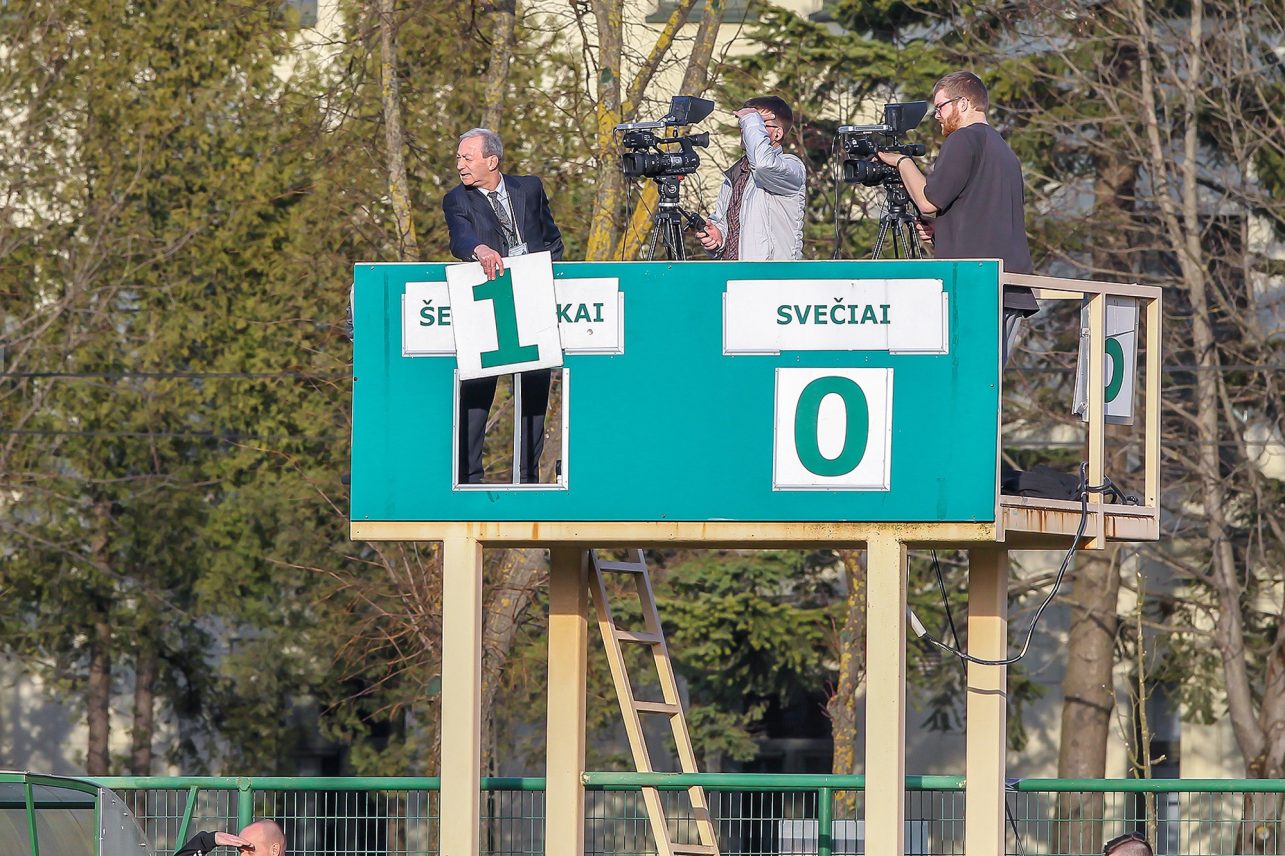
Speaking about club football, the professional athlete mentioned that he enjoys watching English football. Mainly the matches of London Chelsea and Manchester United. Although Gercas does not have country favorites, “If a match is between a weaker and a stronger team, I always secretly hope that the weaker one will win. I also always support host teams. Since I am the inspector of Lithuanian football referees – a person who assesses referees – I probably have to remain neutral in Lithuania. But I will be honest, I am a Kaunas resident and I support Kaunas Žalgiris.”

